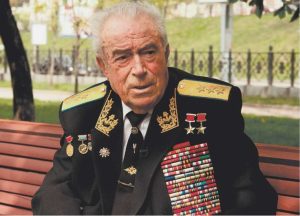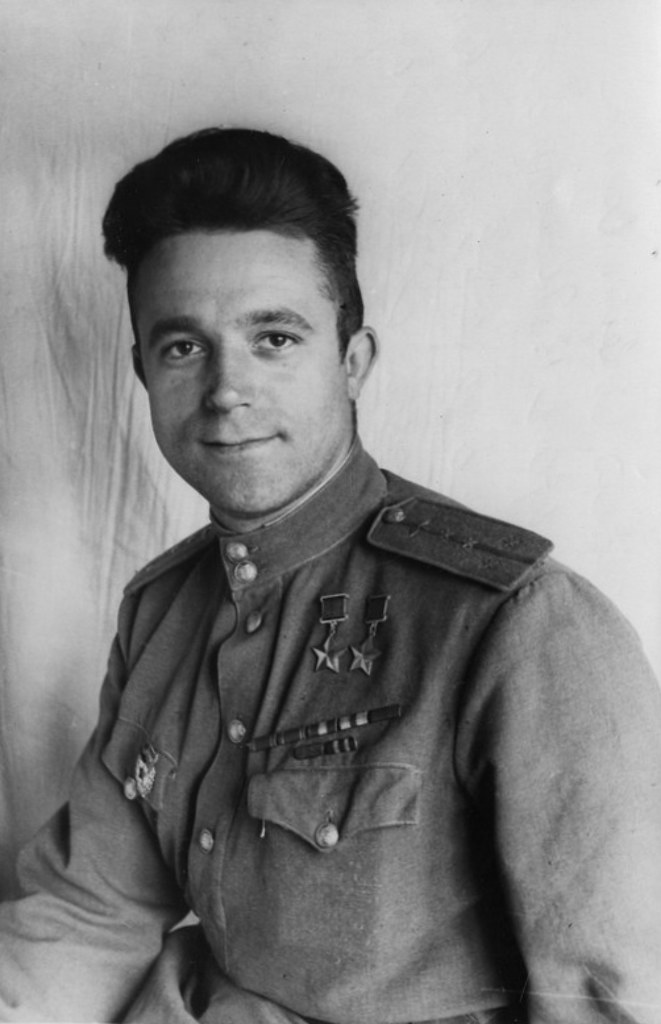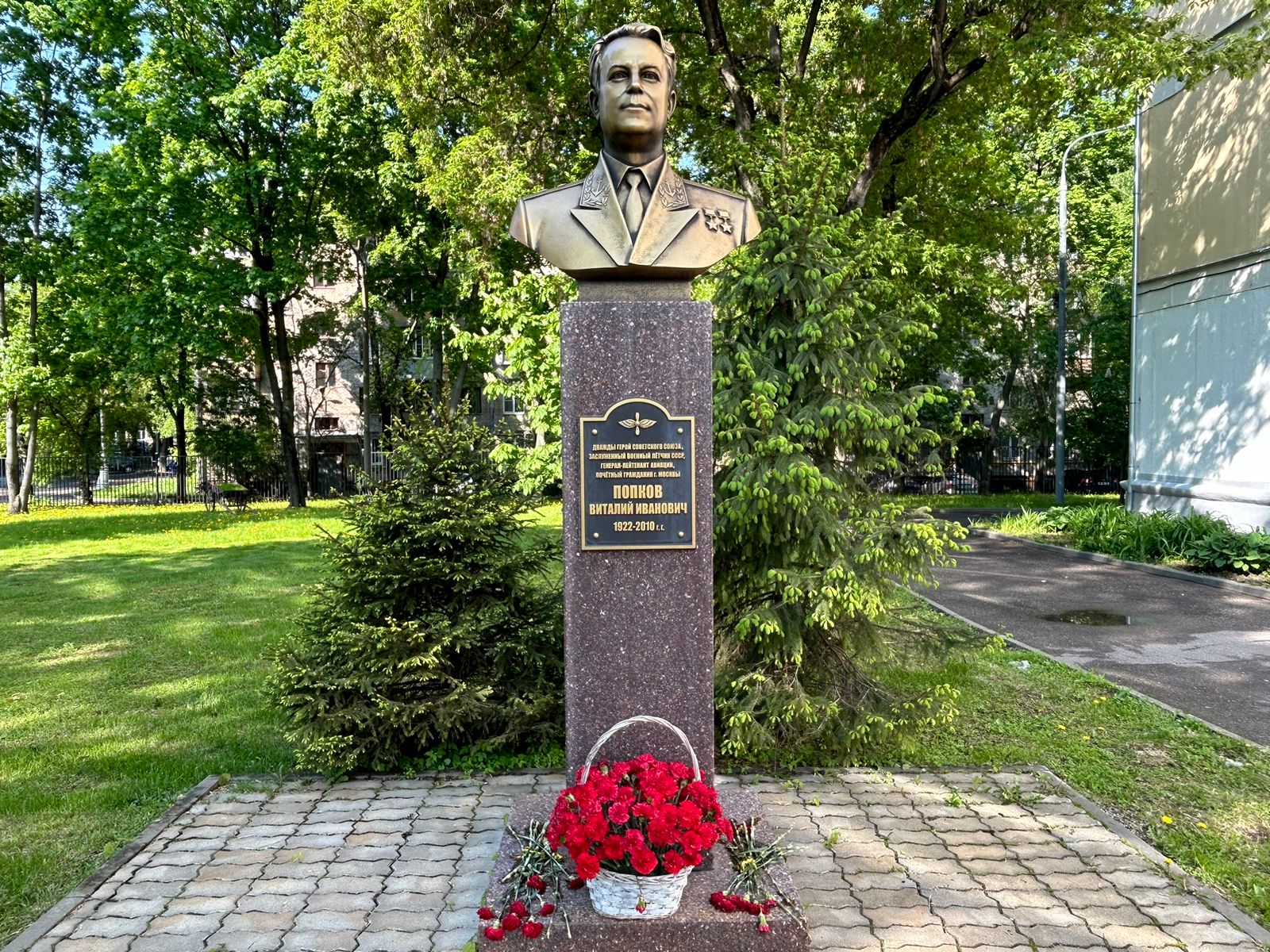Vitaly Ivanovich
Popkov
1922-2010

Vitaly Ivanovich Popkov was a Soviet pilot, participant in the Great Patriotic War, and twice Hero of the Soviet Union. He devoted his life to defending the Motherland and served in the Air Force as a Lieutenant General of Aviation. He was born on May 1, 1922, in Moscow. Popkov grew up in the south of Russia, spending his childhood in Sochi, Matsesta, and Gagra before returning to Moscow in 1938. There, he completed his education at the 10th grade and also completed his training at a glider school and an aero club. In 1940, Vitaly Popkov was drafted into the Red Army. He studied at Chuguev Military Aviation Pilot School and, by the beginning of the war, he bad become a trained pilot. From May 1942, he served at the front and participated in key battles of the Great Patriotic War. These included the Battles of Rzhev, Stalingrad, Kursk, and the battles for the liberation of Ukraine and Poland. As the flight commander of the 5th Guards Fighter Aviation Regiment in 1943, Popkov flew 168 missions and shot down 17 enemy aircraft. For this, he was awarded the title of the Hero of the Soviet Union. By 1945, Popkov had commanded a squadron and flown 325 missions, had personally shot down 41 aircraft and another 1 in a group. He was awarded the second Gold Star medal for his achievements. During the war Popkov was injured twice, including when his plane was shot down in August 1942 and he escaped using a parachute. Overall, during his service, Popkov conducted 358 missions and participated in 85 air battles. As a pilot, Popkov mastered the Soviet LaGG-3, La-5, and La-7 fighter aircraft. His special achievement was the creation of a “singing squad” – he organized a music ensemble in his regiment to boost the morale of pilots. Leonid Utesov, upon learning about this, donated two fighters to the squad. After the war, Popkov continued serving in aviation, commanding a squadron in Germany and later in the Air Force of the Black Sea and Baltic fleets. In 1958, he received the rank of major general of aviation. In 1964, after graduating from the Military Academy of General Staff, he served in the General Staff’s Main Organizational and Mobilization Department, and from 1966 as an aviation inspector for the Navy of the USSR. In 1968, he became a lieutenant general and continued flying jet fighters until 1979, when he retired. He worked at the Air Force Academy of Engineering, engaging in scientific and pedagogical activities. He defended his doctoral thesis and became a professor. In 1989, he retired, but continued to be active in public work. He was vice-president of the Union of Reserve Officers of Russia and a member of several international organizations. His military and personal achievements have been recognized and respected both in Russia and abroad.
Address: Moscow, 11th Tekstilshchikov St., 6

